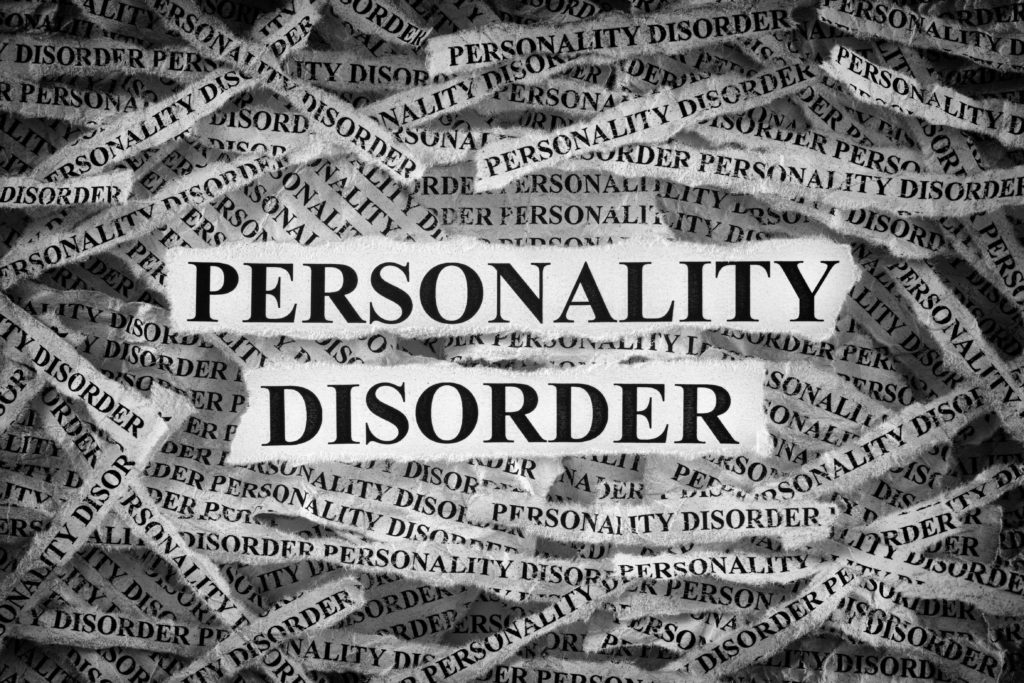Ten Types of Personality Disorders and How They Impact Us

Great summary of co-occurring personality disorders – Taylor Brown, B.A.Com., MAADC II
When faced with a crippling addiction to drugs or alcohol, it’s common for someone to feel alone. Unfortunately, that same feeling of isolation can occur because of another condition that plagues millions of Americans who may or may not cite substance abuse as an influence.
According to the National Institute of Mental Health, more than 9% of adults in this country struggle with a personality disorder. The Diagnostic and Statistical Manual of Mental Disorders (DSM), a book published by the American Psychiatric Association, defines a personality disorder as: “an enduring pattern of inner experience and behavior that deviates markedly from the expectations of the individual’s culture.”
Classifications of personality disorders
Since its first edition, the DSM has been the authority on this facet of mental illness, adding and removing types or subsets of disorders as researchers learn more. There are now 10 different personality disorders named by the DSM as outlined in the fifth and most recent edition from 2013.
It’s also important to note that the DSM segments out personality disorders into three clusters. Here’s a brief look at the different types of clusters and an explanation of each disorder that falls within.
Cluster A personality disorders
The disorders within this group are all associated with behavior that others might consider to be strange or eccentric.
- Paranoid personality disorder — As the name implies, this disorder involves extreme and unwarranted paranoia or suspicion of others, including an inability to trust.
- Schizoid personality disorder — Though it shares a name similar to schizophrenia, it is in no way related to that brain disorder. Rather, people with this disorder tend to avoid social relationships, opting instead for a solitary life detached from others. Those with schizoid personality disorder may also struggle to find joy in the things most people find pleasurable.
- Schizotypal personality disorder — While this disorder is on the schizophrenia spectrum, it rarely presents with episodes of psychosis. Symptoms that do accompany schizotypal personality disorder include peculiar beliefs, odd speech patterns, extreme social anxiety, and other strange behaviors.
Cluster B personality disorders
This group contains those that are most closely linked to emotion or overdramatization.
- Antisocial personality disorder — While this disorder sounds like something that would allude to seclusion, it’s actually linked to an utter disregard for the feelings or values of others. People with antisocial personality disorder are likely to lie or deceive to better themselves or their situation with no remorse.
- Borderline personality disorder — Unstable is the best word to describe this disorder. From feelings of anger to emptiness and abandonment, followed by bouts of impulsivity and recklessness, there are ups and downs throughout the day.
- Histrionic personality disorder — People with a histrionic personality disorder crave attention and will stop at nothing to receive it, even if that means acting out inappropriately or provocatively in social or unsuitable settings.
- Narcissistic personality disorder — Much like the name suggests this disorder is best attributed to narcissists or people who believe they are better than others. They may feel an overwhelming need for admiration and have a sense of entitlement.
Cluster C personality disorders
Disorders that fall within this group have to do with being overly anxious or fearful.
- Avoidant personality disorder — Though people with this disorder battle with the feeling of loneliness, they usually avoid establishing relationships that could address it. Typically, they are extremely shy and fear social rejection.
- Dependent personality disorder — By not believing in their own abilities to thrive, people with dependent personality disorder become reliant on others to meet needs. They lack confidence, have trouble offering conflicting or disagreeing opinions, and fear being alone.
- Obsessive-compulsive personality disorder — Similar to OCD, people with this disorder become consumed with schedules or rules, frequently choose work or projects over relationships, and lack flexibility.
Personality disorders and substance abuse
While there’s no chemical connection between personality disorders and substance abuse, there is a particularly high correlation between antisocial personality disorder and drugs and alcohol. We also know that someone struggling with any of these personality disorders can (and often does) resort to substances to escape the pain and symptoms of these debilitating conditions.
The staff at Midwest Recovery Centers understands you may be battling demons that are more complicated than drug or drink. We have on-site therapists and Peer Support Specialists that create recovery programs rooted in a supportive environment to help you overcome your problems.
Reviewed and Assessed by
Taylor Brown, B.A.Com., MAADC II
Tim Coleman, M. of Ed.




